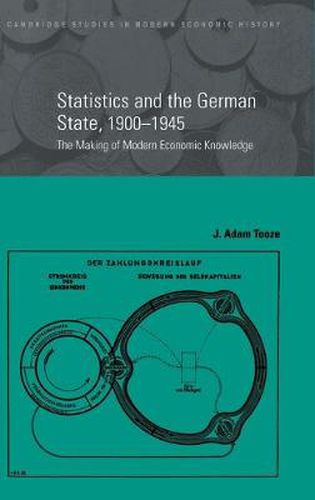Readings Newsletter
Become a Readings Member to make your shopping experience even easier.
Sign in or sign up for free!
You’re not far away from qualifying for FREE standard shipping within Australia
You’ve qualified for FREE standard shipping within Australia
The cart is loading…






Tooze provides an interpretation of the dramatic period of statistical innovation between 1900 and the end of World War II. At the turn of the century, virtually none of the economic statistics that we take for granted today were available. By 1944, the entire repertoire of modern economic statistics was being put to work in wartime economic management. As this book reveals, the Weimar Republic and the Third Reich were in the forefront of statistical innovation in the interwar decades. New ways of measuring the economy were inspired both by contemporary developments in macroeconomic theory and the needs of government. The Weimar Republic invested heavily in macroeconomic research. Under the Nazi regime, these statistical tools were to provide the basis for a radical experiment in economic planning. Based on the German example, this book presents the case for a more wide-ranging reconsideration of the history of modern economic knowledge.
$9.00 standard shipping within Australia
FREE standard shipping within Australia for orders over $100.00
Express & International shipping calculated at checkout
Tooze provides an interpretation of the dramatic period of statistical innovation between 1900 and the end of World War II. At the turn of the century, virtually none of the economic statistics that we take for granted today were available. By 1944, the entire repertoire of modern economic statistics was being put to work in wartime economic management. As this book reveals, the Weimar Republic and the Third Reich were in the forefront of statistical innovation in the interwar decades. New ways of measuring the economy were inspired both by contemporary developments in macroeconomic theory and the needs of government. The Weimar Republic invested heavily in macroeconomic research. Under the Nazi regime, these statistical tools were to provide the basis for a radical experiment in economic planning. Based on the German example, this book presents the case for a more wide-ranging reconsideration of the history of modern economic knowledge.